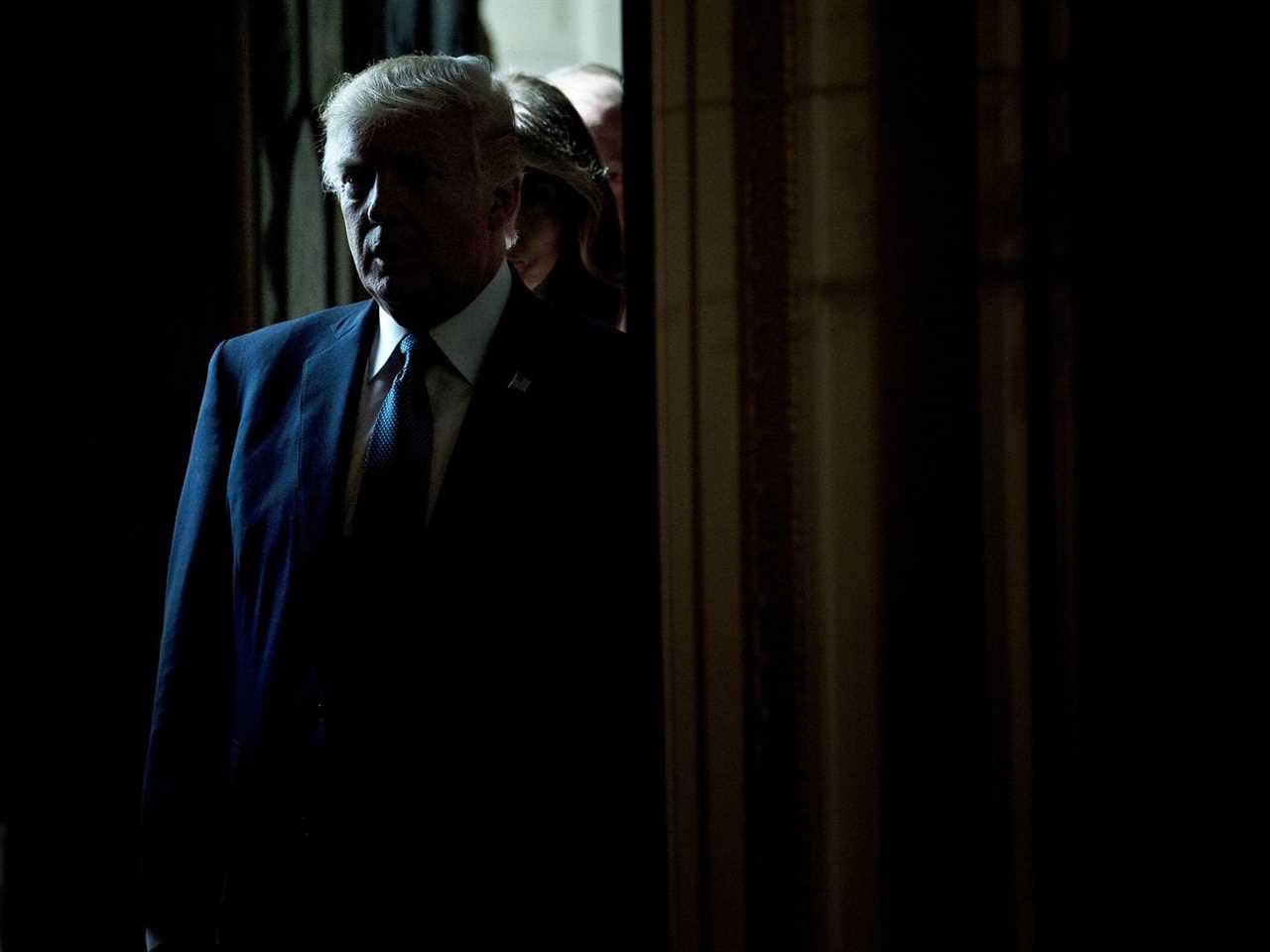
Trump’s debate-night interview with Tucker Carlson was a taste of the chaos to come.
The leader of the Republican Party was not onstage at its first presidential debate on Wednesday night. Instead, Donald Trump was appearing in an interview with Tucker Carlson, entertaining Carlson’s fantasies about a second Civil War.
Carlson, the disgraced former Fox News host, asked Trump twice whether he believed America might be heading toward a “civil war” or “open conflict.” In response, the former president suggested that such violence was within the realm of possibility.
“There’s a level of passion I’ve never seen, there’s a level of hatred I’ve never seen. And that’s probably a bad combination,” Trump told Carlson.
It’s hardly the most offensive thing Trump has ever said. But it is dangerous: The idea that the United States is careening toward civil conflict is a central animating idea among violent far-right extremists. Trump indulging such dark speculation, given his influence on the American right, runs the risk of even further mainstreaming their ideas, creating conditions where actual, non-speculative violence becomes more likely.
On Wednesday night, nothing said by any of the other Republican contenders onstage in Milwaukee really mattered: Trump leads the field by an average of over 40 points, a lead that has only grown more stable over time. He will, barring some true shock, again be the Republican nominee for president.
And the interview with Carlson is the latest reminder of what that means: An authoritarian-minded leader has correctly realized that he’s bigger than his party. He sets the rules, not them. Whatever dark territory Trump wants to enter, he can be confident that a pliant GOP will follow him.
How the Trump-Tucker interview previews a dangerous campaign to come
The civil war questions were part of a series in which Carlson tried to goad Trump into saying something extreme even by the former president’s standards. Carlson repeatedly asked Trump if he believed there was a conspiracy to kill him rather than allow him to win another election (Trump implied it was possible). He also asked Trump, twice, whether Jeffrey Epstein killed himself (Trump thinks Epstein probably committed suicide but that it’s plausible he didn’t).
This was, of course, eminently predictable. Tucker Carlson’s worldview consistently features the idea of a shadowy “they” working to destroy ordinary Americans and their political champions. Of course he would push Trump to speculate about conspiracy theories and violent fantasies; it’s what he does. Nor was there any doubt that Trump would indulge such thinking. It’s what he does.
In a normal campaign, one run by a normal party, none of this would be happening. But this is not a normal campaign, and the Republican Party is not a normal party.
Donald Trump skipped the presidential debate in part because he judged himself to be bigger than the party and its other candidates. “I’m leading by 50 and 60 points. And you know, some of them are at one, zero, and two. And I’m saying, do I sit there for an hour or two hours ... and get harassed by people that shouldn’t even be running for president?” Trump told Carlson.
Indeed, Trump doesn’t just dominate his rivals in recent primary polls: Years of evidence tell us his well of support among Republicans is deep and sustainable. One recent poll found that Trump voters trust him more than their own friends and family.
Because of his commanding position among the party faithful, he can flagrantly disrespect the GOP’s power centers, like the Republican National Committee and debate host Fox News, and expect little in the way of consequences. As he noted in the Carlson interview, Fox News covered him more harshly in the early stages of the 2016 campaign, and he beat them then when he was weaker than he is today.
What this suggests is that Trump feels even fewer constraints to abide by the traditional rules and norms that govern American political life — despite, or perhaps even because of, the four criminal indictments against him. He can give an interview to a radical conspiracy theorist who airs his show exclusively on Twitter (now known as X) because he thinks it would be better for him — and, perhaps more importantly, because wants to.
The same likely goes for other, more consequential decisions.
In the interview, Trump said that his administration was hampered by bad staffing choices — picking a kind of Republican he derisively referred to as “Bushies” for top jobs, citing former Attorney General Bill Barr as an example. This time around, Trump said, that won’t happen: “We’ll have even better people if we do this because now I know Washington.”
There’s every reason to believe he’s serious about this. Reporting by the New York Times’s Jonathan Swan and others has revealed extensive preparations to ensure that, this time around, everyone in power is loyal to him — including brazen power grabs like the mass firing of career civil servants and asserting direct presidential control over historically independent federal agencies.
Trump unchained, in short, doesn’t just mean skipping debates to stoke conspiracist flames with Tucker Carlson. It means that, if Trump wins the general election again, he will be even more dangerous than he was the last time around. And if he loses, he will attack the result’s legitimacy however he sees fit — with the weight of a Republican Party, held captive by its own voters, at his back.
----------------------------------------
By: Zack Beauchamp
Title: The debate was the sideshow
Sourced From: www.vox.com/2024-elections/2023/8/24/23843850/donald-trump-interview-tucker-carlson-skip-republican-debate
Published Date: Thu, 24 Aug 2023 05:16:34 +0000






